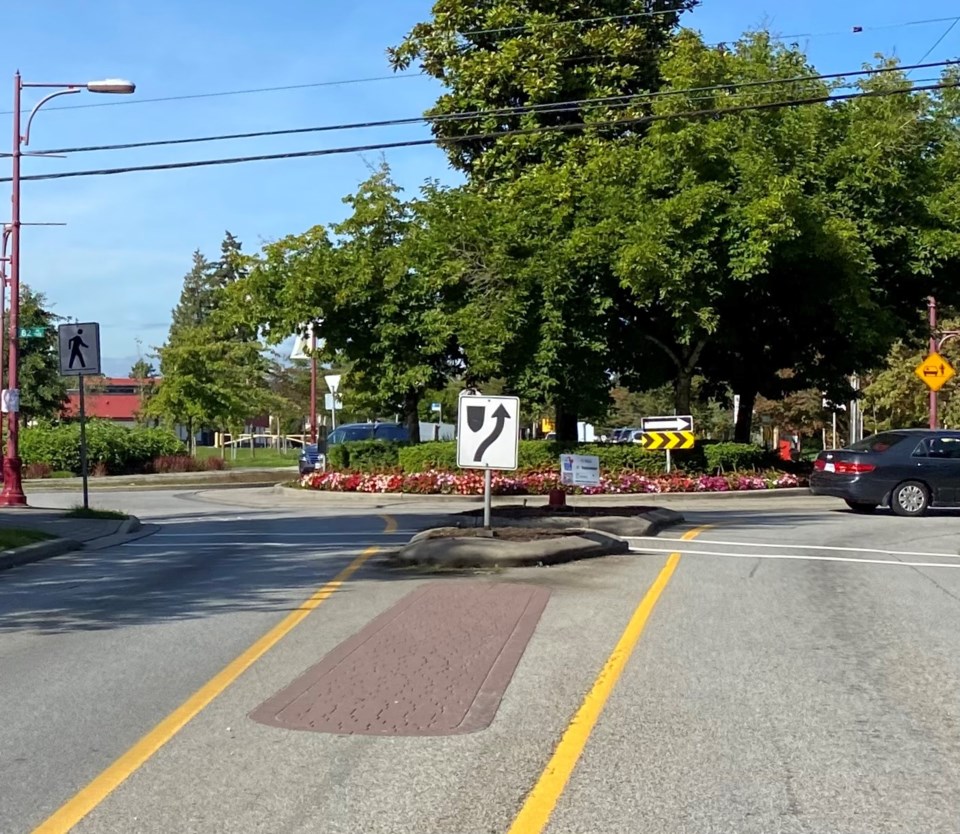The City of Surrey recently issued a request for bids for the construction of a new traffic roundabout at the intersection of 88th Avenue and Harvie Road.
Smaller than traffic circles, but following the same principle, roundabouts allow only one-way traffic around a central island with a tighter curve around the island, aimed at enhancing safety through intersections.
Like traffic circles, drivers entering the roundabout must yield to other traffic and road users already in the roundabout and must signal when entering and exiting.
Among the benefits listed, drivers must slow down to enter, reducing the frequency and severity of crashes.
Part of Surrey’s overall Vison Zero Safe Roads strategy, they are described as being highly effective in reducing crashes where someone is killed or seriously injured, and if designed well also provide safety improvements for vulnerable road users.
Meanwhile, roundabouts are also mentioned in the City of Delta’s new Vision Zero strategy, which was formally endorsed by council last month.
Delta’s Vision Zero document notes roundabouts are used at intersections as an alternative to stop-controlled intersections or traffic signals because research has shown they slow vehicle speeds and prevent right angle collisions, which results in better road safety outcomes.
Delta will continue to implement roundabouts and traffic circles throughout the city where feasible, the document notes.
According to Delta’s engineering department, the city currently has a total of 14 roundabouts and traffic circles.
Earlier this year, ICBC released the findings of a survey conducted by Ipsos, which found just over half of drivers (57 per cent) feel confident navigating a single-lane roundabout but just 29 per cent feel confident navigating a multi-lane roundabout.
The survey also showed that 15 per cent of respondents find it difficult to know who has the right of way when entering, ICBC noted in a news release, adding that it correlates with drivers’ biggest frustration when it comes to navigating roundabouts: other drivers not yielding to vehicles that have the right of way.
“Road design is critical to keeping everyone on our roads safe,” said Shabnem Afzal, ICBC’s director of road safety, in the news release. “Roundabouts are proven to be highly effective in reducing crashes. While common in Europe, they’re relatively newer to Canada. We’re here to offer a refresher and tips so that whether you’re walking, driving or cycling, we all know how to safely navigate roundabouts and share our roads together.”



